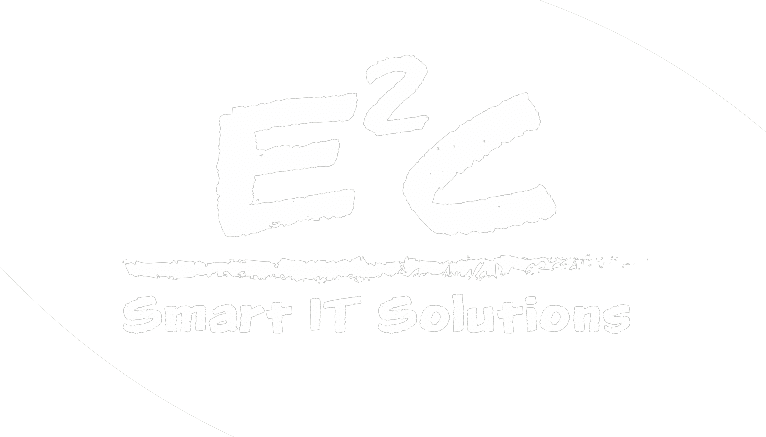Protecting Sensitive Business Information with Data Encryption and Security
The prevalence of hyper-connectedness today poses a constant threat to sensitive business information. Cybercriminals, sophisticated malware, and even internal vulnerabilities put financial records, client details, and proprietary data at risk. The stakes are high—one breach can lead to devastating financial losses and reputational damage.
But businesses aren’t defenseless. By implementing strong data encryption and advanced security features, organizations can fortify their information, making it virtually inaccessible to unauthorized users. Understanding how encryption works and why it’s essential isn’t just for IT experts—it’s a necessity for any business that values security and longevity.
Why Data Encryption Is a Non-Negotiable Business Requirement
At its core, data encryption transforms information into unreadable code, only decipherable with the right decryption key. This ensures that even if cybercriminals intercept sensitive files, they can’t make sense of them.
Businesses deal with a constant flow of confidential data, from employee records to financial transactions. Without encryption, this information is exposed to threats like identity theft, financial fraud, and intellectual property leaks. High-profile breaches have shown that organizations of all sizes—whether startups or multinational corporations—are vulnerable if they don’t implement strong security measures.
Encryption isn’t just a protective shield; it’s also a compliance necessity. Many industries, including healthcare and finance, require strict adherence to data protection laws. Regulations such as HIPAA, PCI DSS, and GDPR mandate encryption to prevent unauthorized access to personal and financial information.
Critical Security Features That Keep Data Locked Down
A single security layer is never enough. Businesses need a combination of advanced security features to create a robust defense system against cyber threats.
- End-to-End Encryption ensures that data remains protected from the moment it’s created until it reaches the intended recipient. This is particularly crucial for industries dealing with sensitive communications, such as legal services and financial institutions.
- Multi-Factor Authentication (MFA) adds an extra verification step beyond passwords, making unauthorized access significantly more difficult. Even if credentials are stolen, an additional authentication layer prevents cybercriminals from breaching accounts.
- Role-Based Access Control (RBAC) limits data access based on an employee’s position and responsibilities. Not every team member needs access to critical business information, and RBAC ensures that only authorized personnel can view or modify sensitive data.
- Regular Security Audits and Compliance Checks help businesses identify vulnerabilities before hackers do. Proactive assessments ensure security features remain updated and in line with industry regulations.
Major Security Threats and How Encryption Defends Against Them
Cyberattacks are more sophisticated than ever. Hackers exploit weak security features, phishing schemes deceive employees, and malware infiltrates unprotected systems. Without data encryption, sensitive information is left exposed, creating catastrophic risks for businesses.
- Phishing Scams: Cybercriminals trick employees into handing over credentials or clicking on malicious links. Encrypted communications add an extra layer of protection, ensuring that intercepted data remains useless to attackers.
- Ransomware Attacks: Once ransomware infiltrates a system, it locks files and demands payment for their release. Encrypted data is more resistant to these attacks, reducing the risk of business disruption.
- Insider Threats: Not all security risks come from external sources. Employees—whether intentionally or accidentally—can compromise business information. Encryption and role-based access prevent unauthorized internal access to critical files.
- Data Interception: Hackers often target data in transit, intercepting communications and transactions. Encryption prevents unauthorized users from viewing intercepted data, keeping business operations secure.
How Businesses Can Implement Data Encryption Effectively
While encryption is essential, its effectiveness depends on proper implementation. Businesses must take a strategic approach to ensure security measures work as intended.
- Adopt Industry-Leading Encryption Protocols – The Advanced Encryption Standard (AES-256) and RSA encryption are widely recognized for their reliability in securing sensitive information.
- Encrypt Data in Transit and at Rest – Protecting stored data is just as important as securing information being sent or received. Encryption ensures files remain inaccessible without proper authentication.
- Keep Security Features Updated – Cyber threats evolve rapidly. Businesses should regularly update their encryption methods, firewalls, and security protocols to stay ahead of hackers.
- Train Employees on Best Practices – Human error is one of the biggest security vulnerabilities. Employees must understand phishing risks, password security, and safe data handling practices.
- Partner with IT Security Experts – Working with a trusted IT provider ensures encryption strategies align with business needs. Experts help identify security gaps and implement the most effective protective measures.
How E2C Helps Businesses Stay Secure
Implementing data encryption and security features requires expertise, and E2C is committed to helping businesses stay ahead of evolving cyber threats. With customized security solutions, compliance support, and continuous monitoring, E2C ensures organizations can operate with confidence, knowing their information is protected.
Businesses can’t afford to take security lightly. Cyber threats won’t disappear, but with the right encryption measures, sensitive data remains shielded from harm. Organizations that prioritize security today safeguard their reputation, operations, and customer trust for the future.
Your business’s security isn’t just a checkbox—it’s a necessity for survival in a digital landscape filled with evolving threats. Contact E2C today to discuss how our expert security solutions can protect your sensitive information and keep your business secure.
FAQs
What’s the difference between encryption at rest and encryption in transit?
Encryption at rest protects stored data from unauthorized access, while encryption in transit secures data as it moves between networks and devices.
How does encryption protect against cyberattacks?
It scrambles data into an unreadable format, making it useless to hackers who don’t have the decryption key. This prevents unauthorized access even if the data is stolen.
What industries require encryption for compliance?
Industries handling sensitive customer data, such as healthcare (HIPAA), finance (PCI DSS), and legal services, are legally required to implement encryption for data protection.
Is data encryption only necessary for large businesses?
No. Small businesses are frequently targeted by cybercriminals due to weaker security infrastructures. Encryption is essential for protecting all businesses, regardless of size.
Will encryption slow down business operations?
Modern encryption solutions are designed to provide high-level security with minimal impact on system performance. Businesses can remain secure without sacrificing efficiency.
How can E2C help my business implement security features?
E2C specializes in tailored security solutions, encryption implementation, and ongoing risk assessment to ensure your business remains protected from threats.

Want to learn more?
Fill out the contact form to get in touch with E2C and take the first step towards a comprehensive, proactive, and responsive IT solution.
